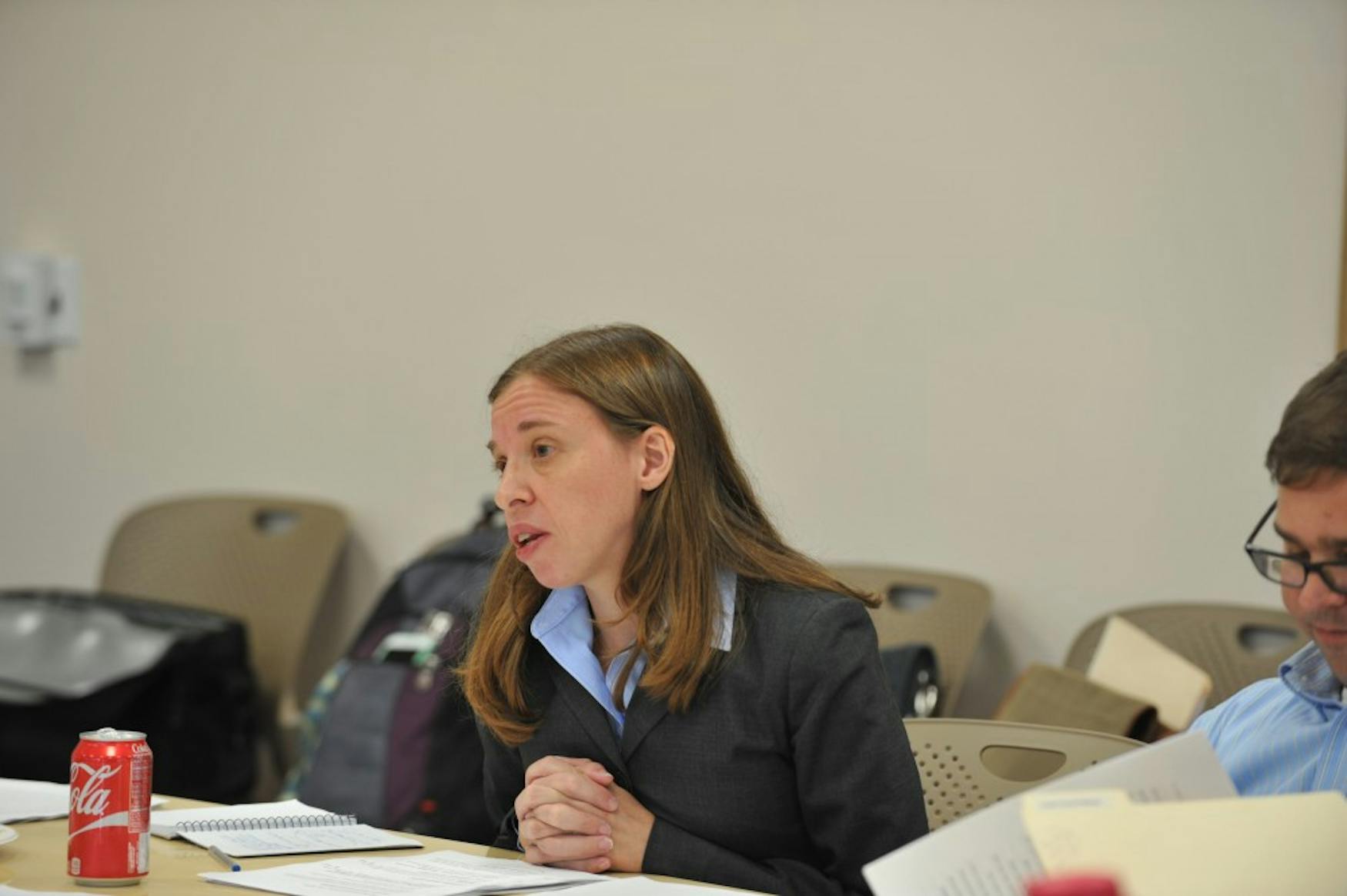Talk addresses Jews in Polish publishing
On Tuesday, the Tauber Institute for the Study of European Jewry hosted Karen Auerbach, Ph.D. ’09, a professor at the University of North Carolina at Chapel Hill, for a discussion on the book she is currently writing, “‘For God and Country’: Jewish Publishers of Polish Books in the Nineteenth Century.”
Auerbach was introduced to the audience by one of her former professors, Prof. Eugene Sheppard (NEJS). In attendance was Prof. Antony Polonsky (NEJS), Auerbach’s former doctoral adviser. “It is humbling to be introduced by my former professor and to be speaking in front of my adviser and actually everyone I’ve worked with in this room who has had a big impact on my life and my career,” she told the audience.
In his introduction, Sheppard noted that Auerbach is someone who is “attune to not only issues of space … but also questions of generation — something that can be seen in her paper today.”
Auerbach then began her lecture, noting that the origins of her latest writing project began in her research for a seminar paper she wrote for Polonsky, during which he advised her to read “Israelita,” which she described as “a newspaper [for] those who identified themselves as … assimilated Jews.”
“In reading that newspaper, … the main theme that came out … was that these individuals were very concerned about their children’s identities, that they were raising their children in Polish culture, Polish society and how to maintain a connection to Judaism and Jewish identity in their children’s lives,” she said. “There was one article that said, ‘We don’t have to give our children biblical names, we can give them Slavic names now, but they should still learn Hebrew.’”
Auerbach then explained that a major point of interest for her in her research was the conversions from Judaism to Catholicism that occurred during this time period. “For the parents, it was a choice, it may have been a choice that was both pragmatic in terms of belief and convenience. For the children it was organic, it was what they were raised in,” she said. “It was not a choice, … the connection of Polish and Catholicism were integrated identities. … It was a confused identity.”
She added that when researching this trend, she “turned to publishers because there has been research on assimilation of Jewish economic elites in the 19th century. Involvement in Polish culture was central to their work. It was not just that they were involved in Polish culture, but that they were mediators of Polish culture,” she said. “Which writers were supported, … which books they had access to … helped to shape what ideas were circulated.”
In particular, Auerbach noted that she studied the Lewentals, one of the most prominent Jewish publishers of the time period, through the diary of Hortensja Lewental, the wife of Frances de Sales Lewental, who ran the publishing company. In the diary, Lewental describes the day-to-day struggle of assimilation and, as Auerbach noted, she serves as an example of a spiritual converter, though she did not convert until shortly before her death.
In order to formulate a conclusion of the changing role of Jews and changing opinions of Jews at this time, Auerbach stated that, “The two brief questions were: How their roles as cultural mediators shaped their own identities and changing identities and on the other hand, how did their background as Jews shape what they published.” Moreover, she asked “To what degree did shared spaces lead to integration?”
A complicating factor, she noted, was that, according to various sources she has read, “social interactions were very common, but actual intimate friendships [between the Jewish and the Polish] were very rare.” She added that her book is going to be about the Lewental family but will focus on the theme of “a micro-history of Polish nationalism from below, how individuals from below experienced nationalism and how those experiences reflect evolving and conflicting conceptions of nationalism.”
Since earning her Ph.D. from Brandeis’s Near Eastern and Judaic Studies Department in 2009, Auerbach has held research positions at the Center for Advanced Holocaust Studies in Washington, D.C. and the Jewish Historical Institute in Warsaw, as well as teaching positions at various universities, including Monash University in Melbourne, Australia and the University of North Carolina, Chapel Hill, where she is currently an Assistant Professor and a Stuart E. Eizenstat Fellow.
The event marked the institute’s first colloquium of the year. The Tauber Institute began hosting colloquia in 2001 as a forum for students and faculty to share their current academic work falling within any area of modern Jewish studies and exchange thoughts and ideas on the topic in question. The Tauber Institute has six more colloquia scheduled for the remainder of the academic year. The next colloquium will take place on Tuesday, Nov. 10, and Mirjam Zadoff of Indiana University will present her work “Mapping Affections: Shiduchim, Networks, and Love Stories in Modern Judaism.”



Please note All comments are eligible for publication in The Justice.